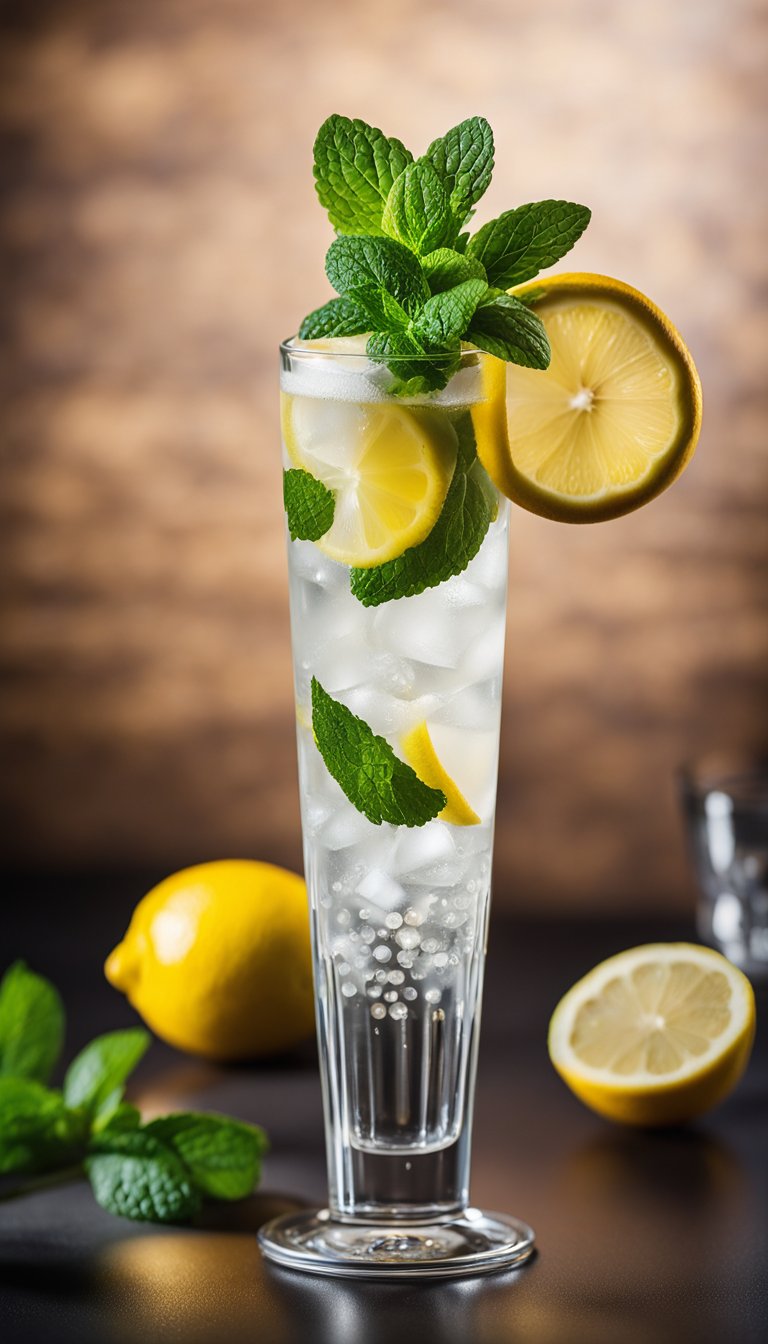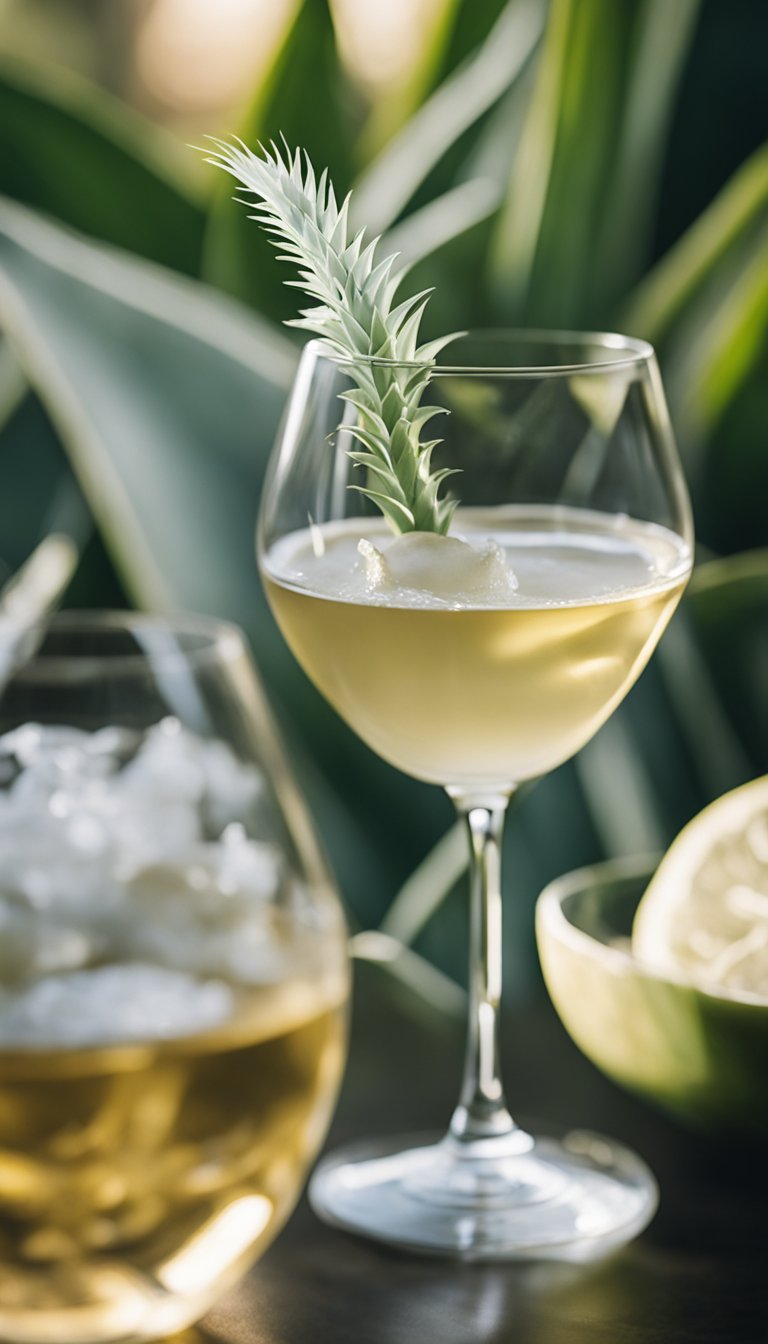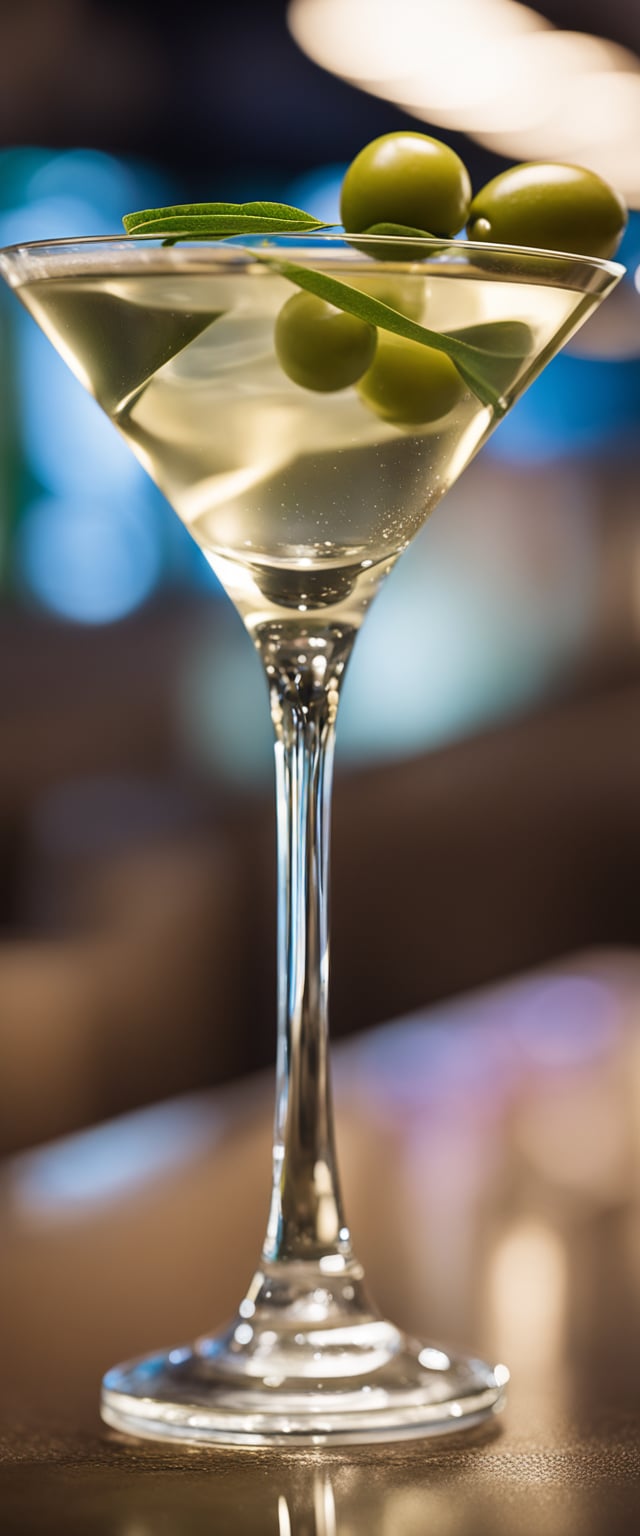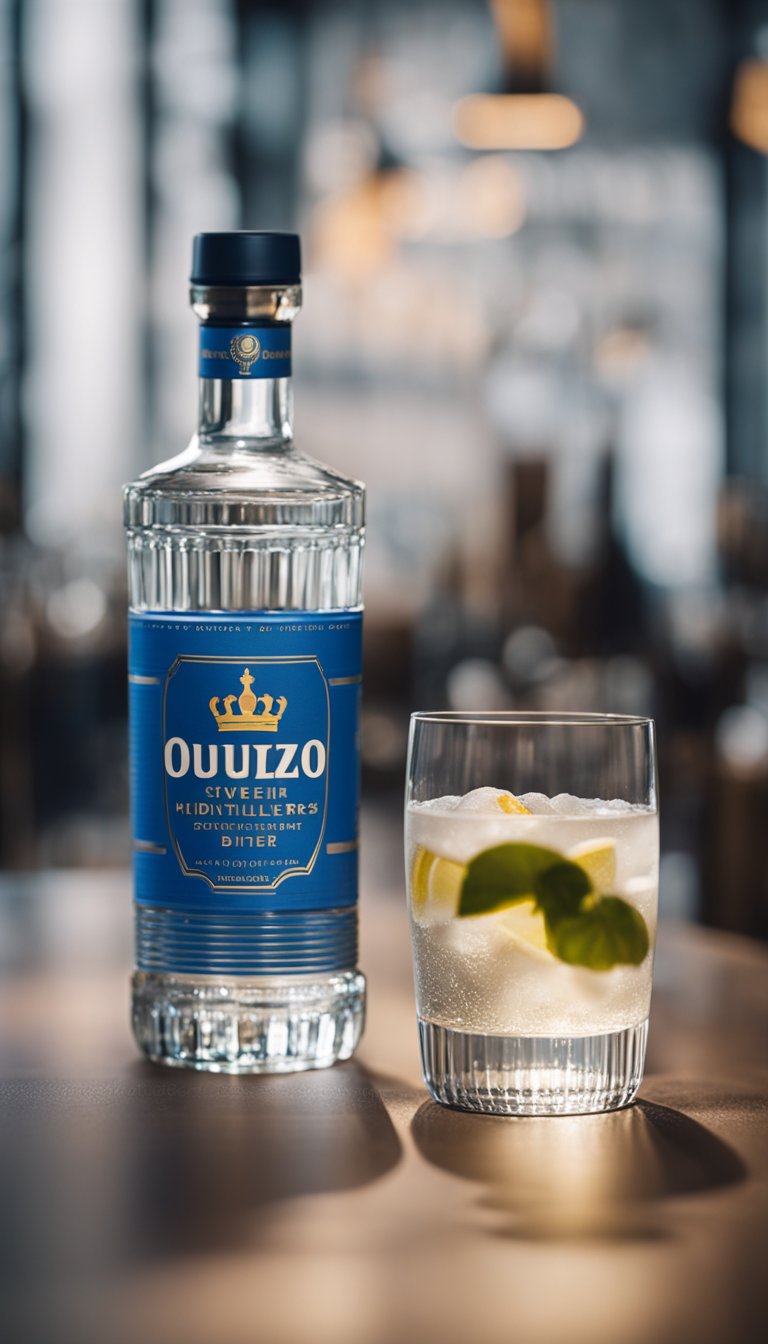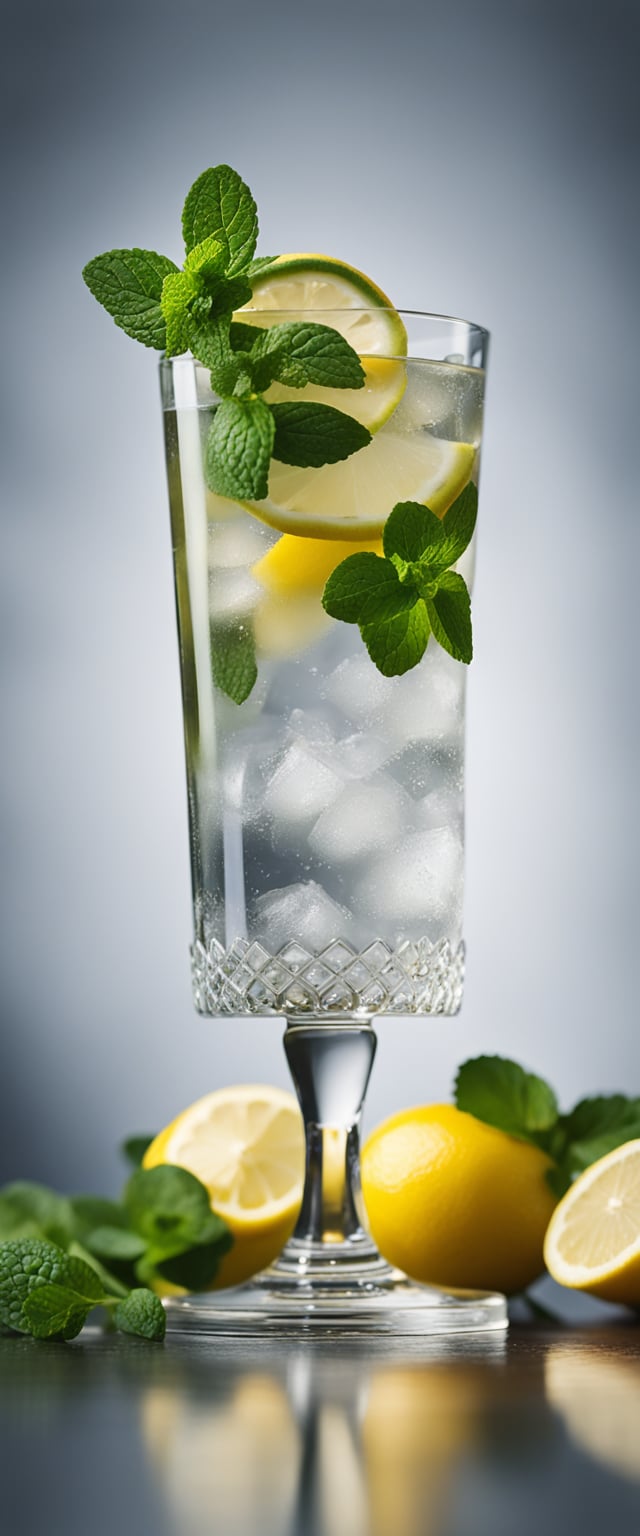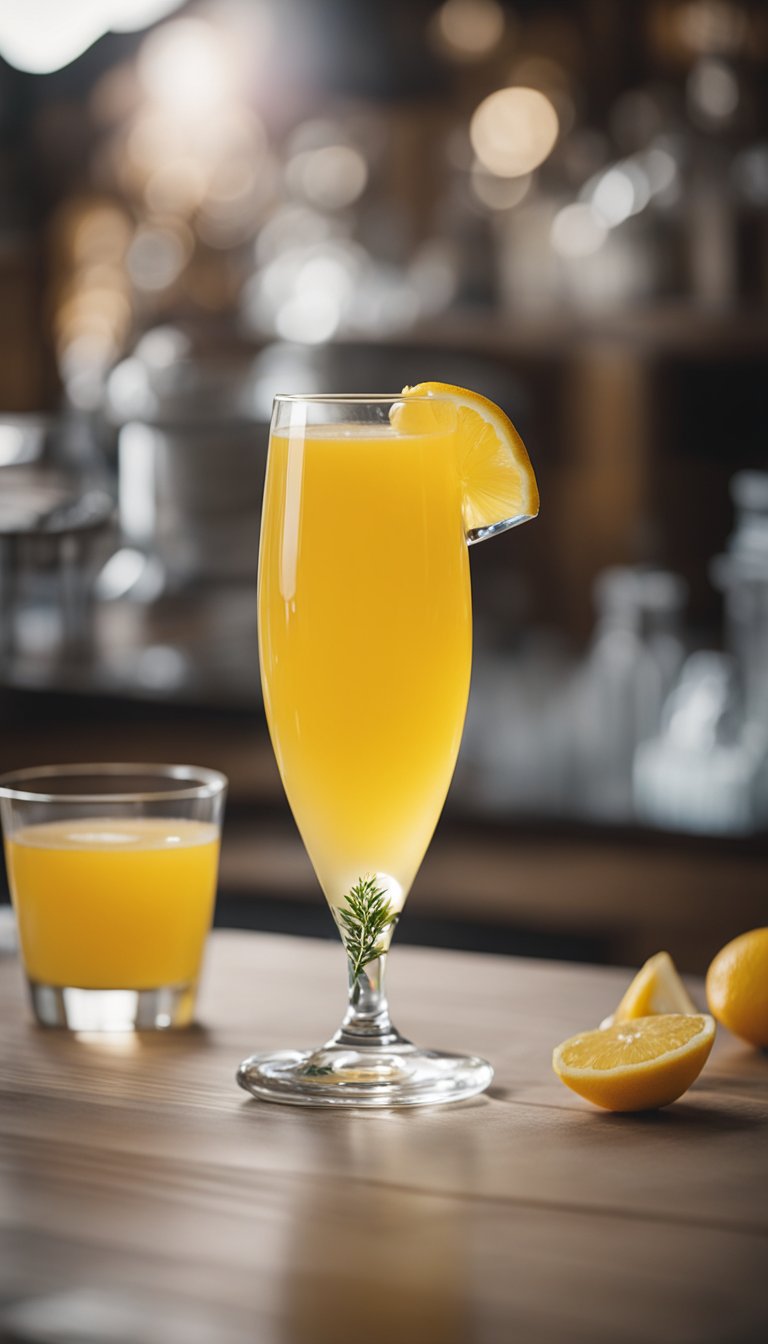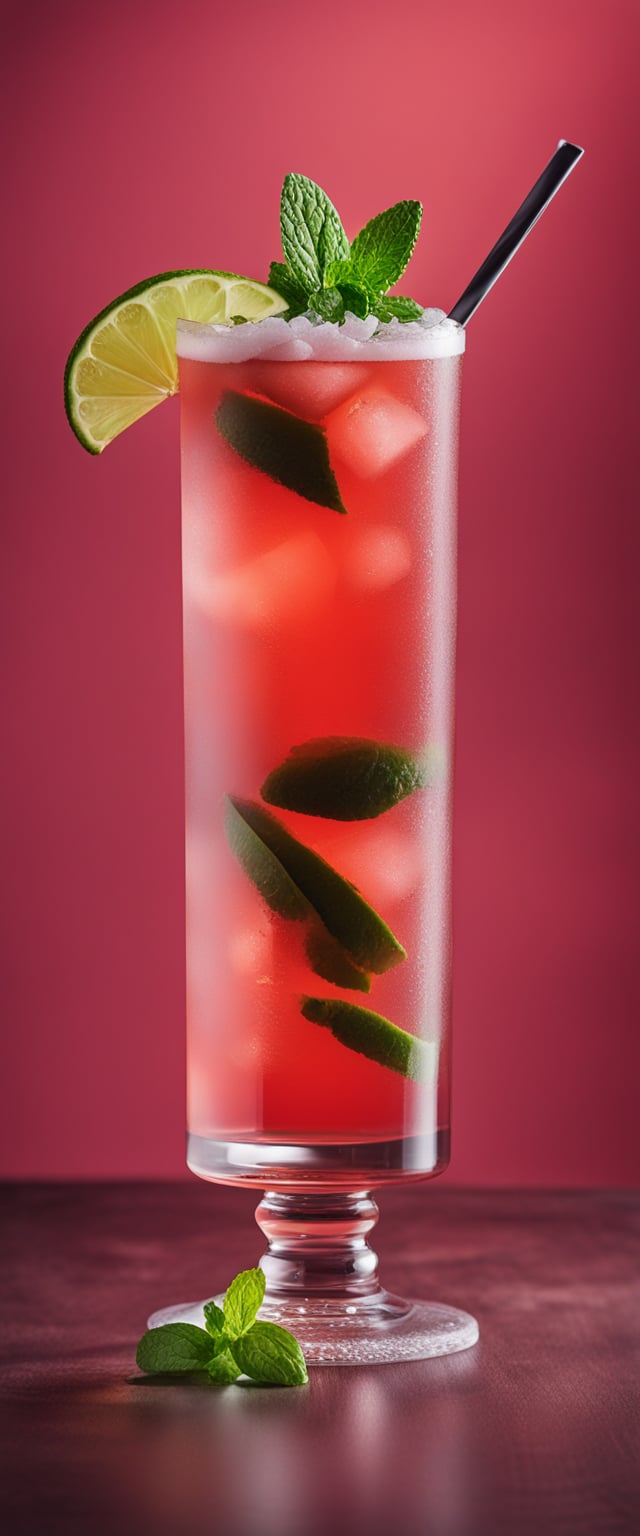The spirits industry is undergoing a profound transformation. The days of you could only drink alcohol as an option available to those seeking to enjoy the exquisite flavors and aromas from exquisitely designed drinks. Today’s health-conscious, mindful society, the demand for alcohol-free alternatives is increasing. This massive shift is generating multiple opportunities within that European Union (EU) and United Kingdom (UK) alcohol-free spirit markets.
The Boom in Alcohol-Free Spirits
The rise of Non-Alcoholic Alternatives
The increased interest in alcohol-free spirits may be due to the rising awareness of the negative effect of drinking alcohol has on general health and wellbeing. Increasingly, individuals are adopting an approach that is mindful of their drinking habits and are choosing the quality of their drinks over the quantity. This is why the Spirits that are alcohol-free are experiencing an unprecedented increase.
Recently, consumers have shown a marked desire for alternatives that permit consumers to experience the rich tastings and sensory experiences that are traditionally related to spirits, all without the effects of alcohol. Be it the familiar juniper notes of gin or the whiskey’s smoky notes, these alcohol-free products are designed to mimic the aroma and taste of their alcohol-based counterparts.
Data show this shift. The market for alcohol-free spirits has increased, and a variety of brands have emerged to accommodate the demands. Notably, established distilleries are also taking part in the movement offering their expertise to create premium alcohol-free spirits that cater to people with sophisticated tastes.
Lifestyle Shifts and Health Lifestyle Change
The growth of alcohol-free spirit is in part driven by the desire to enjoy tasty alternatives, a healthy lifestyle has been a main influencer. A majority of consumers are opting for alcohol-free alternatives to help maintain the health of their lives, reduce the effects of hangovers, and to reduce their alcohol consumption overall.
The trend toward healthier living extends to the wider wellbeing movement, which sees consumers are more focused on self-care and mindfulness. When it comes to this, choosing alcohol-free spirits allows people to enjoy the art of mixing and cocktail making without jeopardizing their health.
As the market continues to evolve the opportunities are plentiful for businesses that can tap into the healthy consumer segment. It is imperative to take advantage of these opportunities has never been more evident.
Knowing how to navigate the EU and UK Market
Market Overview
Before diving into the specific opportunities available in the EU and UK alcohol-free spirit market, it’s necessary to be aware of the current landscape. Both regions have witnessed substantial increases in the consumption of alcohol-free spirits.
In the EU the EU, countries such as Germany, France, and Spain are emerging as important marketplaces for non-alcoholic alternatives. These countries, well-known for their extensive culinary traditions and appreciation for fine wines they have also embraced alcohol-free spirit with aplomb. The brands have reacted by providing numerous alcohol-free alternatives to meet the demands of the needs of these markets.
The UK is a vibrant country, with a vibrant spirit of cocktails and its booming consumer enthusiasm for health, is another hotspot for alcohol-free spirits. London is a prime example. It has seen the growth of establishments and bars that are alcohol-free which indicates a rising demand for elegant alcohol-free drinks.
Regulatory Landscape
Understanding how to operate in EU and UK alcohol-free spirit market requires a thorough understanding of the regulatory framework. The regulations governing production or labeling of alcohol-free drinks can vary among regions and countries.
In the EU producing alcohol-free spirits often falls under the same regulations as alcohol-based beverages. This means they must meet exact quality standards, as well as requirements for labeling. It’s important for businesses to make sure that they’re in compliance with EU regulations to be able to enter this market.
In the UK the regulatory landscape is influenced by both EU regulations and domestic legislation. Clear and accurate labeling is important to inform consumers about how much alcohol in products.
It is crucial to understand these rules for companies that want to succeed in the EU and UK alcohol-free spirit markets. Compliance not only protects legality, but also creates trust with consumers.
In our exploration of the growth and dynamics of the market for alcohol-free spirits and laid the foundation with a foundational knowledge of and the EU as well as the UK market. Now it’s now time to study the potential that lie ahead in these markets. In the next part, we will uncover the emerging consumer segments driving demand as well as the new product offerings that are shaping the market marketplace.
Follow the news to take advantage of the chance to make the most of it and realize your full potential in this burgeoning market.
Elevate Your Offerings: Direct Access to Swedish Distillers’ Non-Alcoholic Spirits in Bulk!
Market Niche Markets and Emerging Trends in the EU and UK Alcohol-Free Spirit Industry
In our examination of market trends in EU and UK spirits that are alcohol free, we’ve already decoded the broad expansion of this sector led by health-conscious buyers and mindful drinking. It’s time to investigate this thriving market to understand the specialized segments and new trends that are shaping the landscape.
The Craft Movement to Free Spirit Alcohol
Artisanal Excellence Without Alcohol
Another of the most intriguing developments within the alcohol-free spirit market is the growth of craft distillers dedicated to producing exceptional alcohol-free alternatives. Craftsmen bring the same degree of commitment and skill to alcohol-free spirits that traditional distillers are to their alcohol counterparts.
Spirits that are made without alcohol can be distinguished by their exquisite and sophisticated flavors. They often incorporate botanicals, herbs and spices, expertly distilled to perfection. They’re not simply replacements, but are unique by themselves and are a delight for those seeking a refined and non-alcoholic experience.
Craft Distilleries along with Experimental Offerings
Craft distilleries in their home countries of EU and UK are leading this trend, testing creative distillation and ingredients. If it’s a gin-based alternative filled with exotic botanicals an alcoholic drink inspired by whiskey with some smoky notes, these options are pushing the boundaries of alcohol-free spirits.
People are drawn to crafts because they convey authenticity with transparency, authenticity, and a the desire to be of high-quality. By assisting these producers, consumers feel connected to the craft and eager to try special flavor profiles that brands from the commercial market may not provide.
Targeting Niche Consumer Segments
The Rise of Zero-Proof Cocktails
As the increasing demand for alcohol-free spirits is the demand in zero-proof cocktails, also known as “mocktails.” This trend is particularly popular within restaurants, bars, and mixologists at home. Crafting creative, alcohol-free cocktails has become an art form, in addition, the requirement for top-quality alcohol-free spirits to bind these concoctions is soaring.
Zero-proof drinks are not only for people who have designated drivers or are not drinkers They appeal to everyone who is looking for a refreshing, sophisticated drink that doesn’t have the harmful effects of alcohol. It is the case in EU and UK the increase in Zero-proof drinks has resulted in collaborations between bartenders and alcohol-free spirits companies to develop new recipes, and to enhance the drinking experience.
Affirming the Health-conscious Generation
The segment of the consumer who is health conscious is the driving force behind the success of alcohol free spirits. This group prioritizes fitness and mindfulness. They seek products that match their values and lifestyle choices.
Brands that can emphasize the health benefits that come with their alcohol-free spirits like low calorie content and lack of health risks associated with alcohol could be able to draw the attention of this segment. Moreover alliances with health and wellness experts and professionals can help boost branding credibility.
E&S Focus
Recycling and sustainable Production
Environmental awareness is an important factor in the choice of consumers across this EU and UK. Alcohol-free spirits sector are responding by implementing eco-friendly practices in both production and packaging.
Craft distilleries, specifically ones that are focused on sustainability. They seek out local suppliers whenever they can, reduce water usage, and use eco-friendly distillation techniques. Innovative packaging techniques, like biodegradable, recyclable and biodegradable packaging materials are also taking off.
Stay Ahead Of the Curve
As we travel throughout this EU and UK market for alcohol-free spirits, it’s evident that niche markets and emerging trends are driving the evolution of this sector. Craft distillers are changing the definition of non-alcoholic spirits, to the rise of zero-proof drinks and a focus on sustainability, there’s plenty of opportunity for businesses willing to innovate and meet the evolving demands of customers.
In the coming section, we’ll explore the importance of marketing and branding strategies that are able to resonate with the intended viewers, and also discuss the most important challenges and solutions in this rapidly expanding market.
Watch this space as we discover how you can position your alcohol-free spirit brand to be successful in the EU or UK.
Branding and Marketing Strategies to EU and UK Spirits Alcohol-Free
In our exploration of market trends in EU and UK alcohol-free spirit market we’ve discovered the growing demand for these innovative drinks, the rise for craft liquors that don’t contain alcohol, and the unique consumer segments driving this sector’s growth. Now, it’s time to examine the important realm of marketing and branding strategies that could set the alcohol-free spirit you sell from the crowd.
Building a Strong Brand Identity
Artistic and Authenticity
In the world of alcohol-free spirits, creating an engaging brand identity is essential. The consumers are attracted by brands that exhibit craftsmanship in their work, authenticity, as well as a dedication to excellence. To make your brand an expert in your field Take a look at these strategies:
- Tell Your Story Share the story behind your brand to highlight the passion, dedication and determination that goes into making your alcohol-free spirits.
- Transparency You must be transparent with your ingredients, production techniques, and sources. Transparency builds trust among consumers.
- Visual Identity The goal is to invest in visually appealing logos and packaging designs that reflect your brand’s values and uniqueness.
Calling out to the emotions
Alcohol-free spirits are frequently associated with positive emotions such as being happy, celebrating, and the ability to be mindful. Take advantage of these emotions and bring your audience to you on a higher levels:
- Interactive Storytelling Make stories or marketing campaigns that are resonant with the emotional aspects of consuming spirits that are alcohol-free. Bring out moments of joy, relaxing, and social connection.
- Inclusionary Messaging Highlight that your alcohol-free spirits are accessible to everyone, whether they choose not to drink or are designated drivers or simply want to look for more healthful alternatives.
The most effective marketing strategies
Digital Presence and Content Marketing
In today’s world of technology, a strong online presence is crucial. Your brand must be visible and engaging on various digital platforms:
- SEO for Websites The goal is to create an attractive website that showcases your products, provides detailed information, and also a blog area for content marketing.
- Social Media Engagement: Have active social network profiles to connect with your audience to share useful content and run targeted advertising campaigns.
- educational content: Create content to inform consumers about the advantages, tastes and the versatility of alcohol-free spirits. This could include blog post in addition to infographics, videos, and video.
Partnerships and Collaborations
In collaboration with brands who are like-minded or influencers can help increase your visibility and build credibility
- Bartender collaborations: Partner with bartenders to create recipe for zero-proof cocktails with alcohol-free spirits. These partnerships can be a source of excitement in the mixology and cocktail lovers.
- Influencer Partnerships You can identify influencers in the wellness lifestyle, lifestyle, and alcohol-free space who align with your brand’s values. In collaboration with them, you can create authentic content and get your message out to a wider audience.
Navigating through the New Challenges and Looking ahead
While the market for alcohol-free spirits has a lot of potential however it also has the possibility of presenting some difficulties. Some consumers may have misconceptions about the taste and quality of alcohol-free alternatives. Beating these obstacles requires patience, perseverance and continuous innovation.
In our next article we’ll discuss some of the most pressing issues in the sector and suggest strategies to address these issues. Furthermore, we’ll analyze what the future holds for the EU and UK spirit market, which is alcohol-free, and predict what trends will impact the development of it.
Stay tuned for us to provide you with the information and strategies necessary to excel in this exciting and dynamic market.
Problèmes and Strategies for the EU and UK Alcohol-Free Spirit Market
Through the world of alcohol-free spirits throughout the EU and UK we’ve acknowledged the rising popularity of these innovative beverages and uncovered the basics of branding and marketing strategies. The time has come to look at the problems that brands face in this ever-changing market and give strategies to deal with them.
Issues in the Alcohol Free Spirit Industry
Consumer Untruths
One of the major challenges is misinformation from consumers about the quality and taste of spirits that are alcohol-free. Some consumers still associate these beverages with blandness or inferior flavors. To counter this, you can consider these suggestions:
- Taste Education Inform consumers about the different flavors and complexities of alcohol-free spirits. Host tasting events or virtual tastings to show off your product’s quality and the richness of your products.
- The Sampling Programme Provide sample-sized bottles or packs, allowing consumers to try your spirits without alcohol before making an entire bottle purchase.
Regulatory Compliance
Navigating the complexities of the regulatory environment surrounding alcohol-free spirits can be quite a challenge. Regulations on labeling, distribution and production can differ from country to country. Check for compliance through:
- Consult Legal Professionals Seek legal counsel or regulatory experts who specialize in alcohol and beverage laws for ensuring that your brand is in accordance with all applicable regulations.
- Proper Labeling Create clear and compliant labels that accurately depict your product’s alcohol content and ingredients.
Competition and Differentiation
In the midst of the growth of the market for alcohol-free spirits, competition is intensifying. To be different:
- The Product’s Innovation Create new products with new flavors, packaging, or distinctive production methods.
- Differentiation: Highlight what sets your distinct from the competition, whether it’s sustainability initiatives, exclusive ingredients or a compelling narrative about your brand.
Strategies for Defying The Challenges
Consumer Education
A well-informed consumer is more likely to enjoy alcohol-free spirit. Take a look at these strategies for education:
- Web Resources Create complete online resources that explain the process of production, ingredients as well as the health advantages of your products.
- Customer Care Offer excellent customer support, addressing inquiries and concerns quickly.
Sustainability Initiatives
Customers are increasingly conscious of sustainability. Embrace eco-friendly practices:
- Eco-Packaging: Use sustainable packaging materials, and clearly communicate your commitment to sustainability.
- Local Sourcing Source ingredients locally whenever you can, thereby reducing the carbon footprint of your business.
Alliances and Collaborations
Collaborations can increase your reach and increase your credibility. Consider:
- Retail Partnerships Collaboration with retailers and showcase your products with a prominent display in-store or online.
- Industries Alliances: Join industry associations and alliances for information and to network with other brands of alcohol-free spirits.
“The Future” of market for alcohol-free spirits
As we face these challenges and formulate strategies to address them, it’s essential to take a look ahead. In our next article we’ll discuss prospects for the EU and UK spirits market that are alcohol-free with a focus on emerging trends and opportunities that brands need to keep a close eye on.
Stay tuned for more updates as we travel the exciting direction that lies ahead for this vibrant and developing industry.
Its Future EU and the UK The Alcohol Free Spirit Market: Trends and Opportunities
As we close our investigation and analysis of EU and UK spirits market that are alcohol-free, we look to the future. A new era of exciting potential and promising trends await brands in this rapidly growing industry.
Emerging Patterns of the Alcohol Free Spirit Market
1. Diverse Flavor Profiles
In the near future in the coming years, we can expect an increase in the variety of flavor profiles to enter the market. Consumers’ palates are becoming more adventurous, and brands are responding with new botanical blends that include exotic fruit infusions or aromatic plants.
2. Premiumization
Just as the trend of enhancing premiumization changed the industry of alcoholic drinks and we expect a similar shift in the alcohol-free market. Brands will make investments in high-end ingredients and production methods to provide their customers with a top-quality experience.
3. Sustainability as an International Standard
Sustainability will no longer be a distinctive selling feature, but a standard requirement. Brands that prioritize eco-friendly practices, from sourcing ingredients responsibly to using recyclable packaging, will get an edge in the market.
4. Mocktail Culture
The trend of mocktails or cocktails that are alcohol-free is likely to continue. These sophisticated and alcohol-free alternatives have gained popularity in bars and restaurants as well as providing an possibility for alcohol-free spirit companies to work with establishments.
Possibilities on Horizons Horizon
1. International Expansion
With the EU and UK markets growing businesses should consider increasing their presence abroad. Markets in Asia, in the Middle East, and North America show great promise for alcohol-free spirits.
2. Health and Wellness Partnerships
Collaborations with wellness and health brands, influencers, and events can help alcohol-free spirits reach consumers who are looking for alternatives to alcohol.
3. E-Commerce Dominance
The growing popularity of online shopping provides the perfect opportunity for direct-to-consumer sales. Brands must invest in user-friendly websites, web-based marketing, and e-commerce strategies to make use of this rapidly growing market.
Concluding and Recap
In this series of five, we’ve explored the EU and UK Spirits that are alcohol-free and uncovered its growing popularity along with branding and marketing strategies, as well as challenges and strategies to address these challenges. We’ve also looked at emerging patterns and opportunities that lie ahead for the brands operating in this exciting industry.
The lure of alcohol-free spirits in Europe is undeniable. As people seek healthier and less harmful drinking alternatives and the market continues to prosper. Brands that focus on innovation, quality, sustainability, and global expansion will be better placed for success in the decades to future.
We thank you for taking us on this educational tour through the world of alcohol-free spirits. We hope this article provided you with valuable insights and inspiration for navigating this fascinating and ever-changing market.

